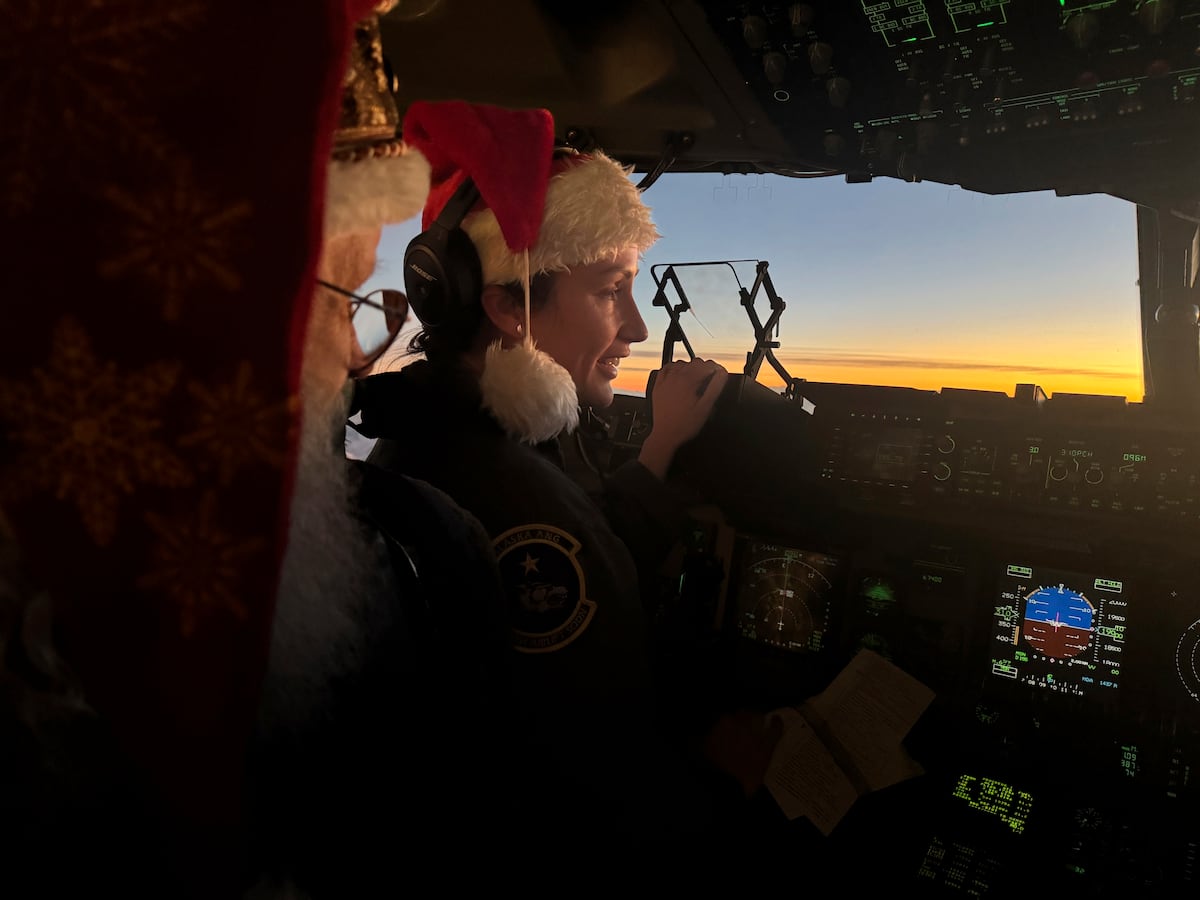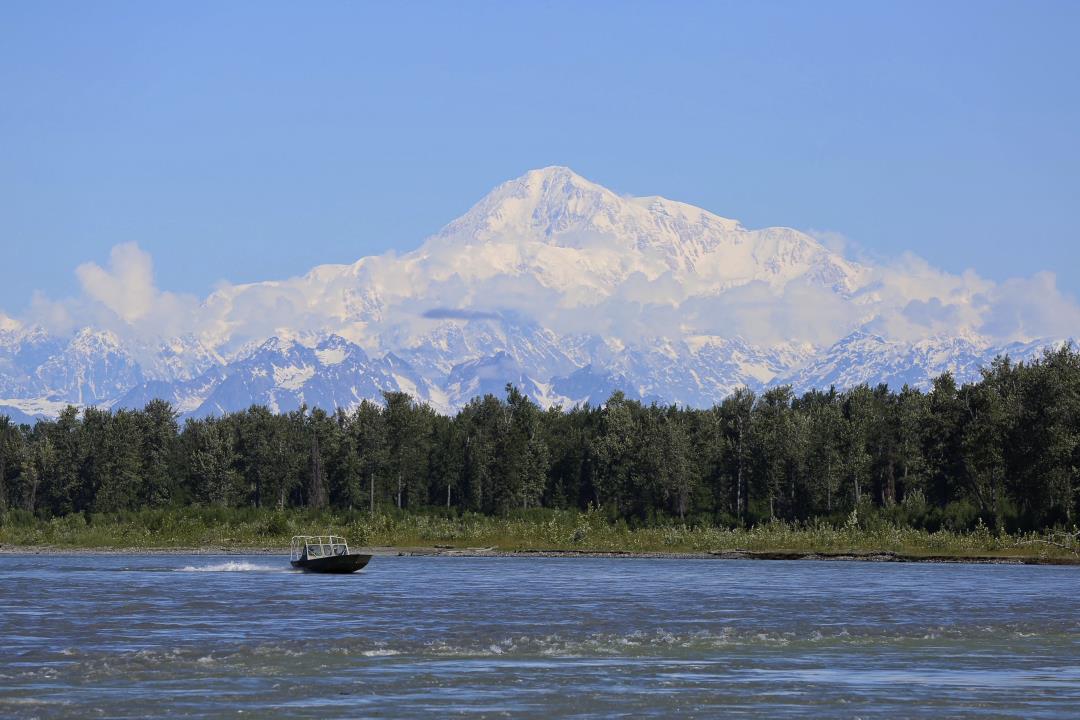Alaska’s elections chief defended her division’s management of the 2024 elections at a legislative hearing last week, but she acknowledged that logistical challenges created problems for some voters.
Carol Beecher, director of the Division of Elections, reviewed the operations during a more than two-hour hearing of the state House Judiciary Committee. She fielded questions from the committee’s chair, Rep. Sarah Vance, R-Homer, and other Republicans about election security and possible fraud, and she answered questions from Democrats about problems that led to rural precincts being unstaffed or understaffed, which presented obstacles to voters there.
Vance said she did not intend to cast blame, but that she hoped the hearing would lead to more public trust in the election process.
“The purpose of this meeting is to discuss the process of the 2024 election, not the results. It’s not about the outcomes, but about making sure that every legal vote gets counted in a timely manner, and asking what improvements can be made in the process,” she said.
“A lot of the public has reached out to me and expressed a lot of frustration and concern around a lot of the activities of this election,” she said. “So this is an opportunity for us to have a conversation with the director of elections and the public so that we can gain an understanding about what happened and how the actions that we can take in the future.”
Beecher responded to Republican committee members’ queries about safeguards against fraud and the possibility that non-citizens are casting votes.
“We often get asked about U.S. citizenship as regards elections, and we are only required and only allowed to have the person certify and affirm on the forms that they are a citizen, and that is sufficient,” Beecher said. “We do not do investigations into them based on citizenship questions. If there was a question about citizenship that was brought to our attention, we may defer that to the department of law.”
Residents are eligible to vote if they are a citizen of the United States, age 18 years or older and have been registered in the state and their applicable House district for at least 30 days prior to the election. Eligible Alaskans are automatically registered to vote when they obtain their state driver’s licenses or apply for Alaska Permanent Fund dividends.
Beecher said the division investigated and found no evidence of non-U.S. citizens being registered through the PFD system. “This is not happening where somebody is marking that they are not a citizen and are receiving a voter registration card,” she said.
Vance said many Alaskans remain worried, nonetheless, about non-citizens casting votes. “I think people are wanting a stronger position regarding the ability to verify citizenship for the people wanting to vote,” she said. “So can the division take action to verify citizenship on its own, or does it need statutory authority?” Beecher confirmed that the division does not have the authority to verify citizenship.
Tom Flynn, a state attorney, advised caution in response to Vance’s suggestion.
“We should be also wary of the limits that the National Voter Registration Act and its interpretation can place on citizenship checks and the federal voting form requirements,” said Flynn, who is the state’s chief assistant attorney general. The National Registration Act of 1993 prohibits states from confirming citizenship status.
:quality(70)/cloudfront-us-east-1.images.arcpublishing.com/adn/ZAQ4CR6IRZA67MKHOB44FEAP3U.jpg)
In response to questions about opportunities for fraud through mail-in absentee voting, Beecher said the state relies on the information voters provide. “If an individual applied for an absentee ballot, and all of the information was in our voter registration system that you were eligible to vote, etc, and you had a legitimate address to send it to, then you would be mailed an absentee ballot,” she said.
Each ballot is checked for appropriate voter identification information. Ballots are coded by district, and then given another review by another group of election workers, including an observer, she said. “The observer has the opportunity to challenge that ballot. If they challenge a ballot, a challenge is sent to me, and then I review the information based on what the challenge is, and I’ll often confer with [the Department of] Law,” she said.
Alaska has notably low voter turnout, but also a steadily changing voter roll as it’s one of the most transient populations in the nation, with voters moving in and out of state.
Alaska has a mix of districts with ballot scanners and hand count precincts, usually in rural areas with a small number of voters, as well as voting tablets for those with disabilities. Ballot scanners record ballot information, which is encrypted before being sent to a central server in Juneau. All voting machines are tested ahead of time, Beecher said. For hand count precincts, ballots are tallied up and poll workers call in the results to the division’s regional offices, she said.
“We had about 15 people on phones to take the calls that evening, and the phone starts ringing immediately, and all of the different precincts are calling in,” she said. Division workers also helped poll workers properly read rank choice ballots, she said. “And so there’s a lot of discussion that can happen on that phone call. It’s not necessarily just as simple as going through the list.”
The division of elections has 35 permanent staff who are sworn to remain politically impartial and who work in five district offices to administer the elections in the 60 legislative districts.
Beecher said the division reviews its processes, systems of communications, challenges and improvements needed in each election cycle. “The division has lists and lists and checklists and handbooks, and is very good and diligent about making sure that process and procedures are lined out and checked,” she said.
Rural Alaska problems
Administering elections in rural communities is an ongoing challenge in Alaska. Beecher answered questions on several incidents, including voters in Southwest communities of Dillingham, King Salmon and Aniak receiving the wrong ballots that had to be corrected. In August, a mail bag containing a voted ballot and primary election materials from the village of Old Harbor on Kodiak Island was found on the side of the road, near the Ted Stevens Anchorage International Airport.
“We don’t have control over the materials when they are in the custody of the post office, in this case, it was one of their subcontractor carriers,” she said. “We weren’t told [what happened] specifically, but I know that the post office has processes when mail is lost like that, and they do deploy their processes with that contractor.”
Vance said the incident was serious.
“I hope the state is pursuing further accountability, because this is a matter of public trust that something so important was dropped out of the truck along the roadside,” she said. “It looks extremely negligent.”
Beecher said training and retaining poll workers is essential for running elections smoothly. “So one of the challenges that we run into, and frankly, it’s not just in our rural areas, the turnover of poll workers is a reality,” Beecher said. The division conducts in-person poll worker trainings, and provides support with video tutorials and by phone.
This year, in the western Alaska community of Wales, the designated poll worker was not available and so the division of elections located a school teacher late on election day to administer the polls. “It was not ideal,” she said, but they had trained back up poll workers ready to deploy this year.
“We had trained people who were situated at all the various hubs, so Anchorage, Fairbanks, Utgiagvik, Nome, and they were trained and ready to be deployed to some of these polls should we run into a situation where we didn’t have poll workers on the day,” she said. “So we weren’t able to get them to Wales only because of the weather. They were there at the airport ready to head out there. But we did send them to Egegik, and there were polls there.”
Responding to Rep. Cliff Groh, D-Anchorage, Beecher said one thing she would have done better would have been to ensure that the official election pamphlet was more carefully reviewed and checked for errors.
A notable error in the published pamphlet was the misidentification of Republican House candidate Mia Costello as a Democrat.
“Secondly, I would have made sure that our advertisement that had a name in it would not have used names,” she said, referring to a rank choice voting education materials giving examples with fake elector names, including “Odem Harris” which Republicans pointed out filled in a first choice vote for “Harris,” also the Democratic presidential candidate.
“And thirdly, I wish that I had done a better job of anticipating the level of communication that was expected and needed,” Beecher said.
In response to a question about the ballot measure seeking to overturn the ranked-choice system, Beecher said there was no evidence of fraud. The measure failed by just 743 votes.
“We did not see something that would indicate that anything untoward happened with ballots. That simply was not something that was seen in the results,” she said.
Beecher suggested some improvements for legislators to consider this next term. Those included an expansion of mail-only precincts, paid postage for ballots and a requirement that mail-in ballots be sent earlier rather than postmarked by Election Day. “On ballot counting, doing it sooner,” she said. “So potentially changing the time frames of receiving absentee ballots to having everything have to be received by Election Day.” The latter would be a big change for Alaska, which has long counted mail-in ballots as long as they are postmarked by Election Day.
Some changes may be warranted, she said.
“We are not perfect. We know that,” she said. “And we really look to doing better, and [are] wanting it to be better, and that people are confident that it is managed in a way that they have trust in the integrity of the process.”
The next Legislative session starts on Jan. 21. Under the new bipartisan majority, Rep. Andrew Gray, D-Anchorage, is set to chair the committee in the coming session.
Originally published by the Alaska Beacon, an independent, nonpartisan news organization that covers Alaska state government.









:quality(70)/cloudfront-us-east-1.images.arcpublishing.com/adn/JXABNPN7TZEBTFCUFZDZVO4LI4.jpg)














/cdn.vox-cdn.com/uploads/chorus_asset/file/24924653/236780_Google_AntiTrust_Trial_Custom_Art_CVirginia__0003_1.png)





/cdn.vox-cdn.com/uploads/chorus_asset/file/25672934/Metaphor_Key_Art_Horizontal.png)
